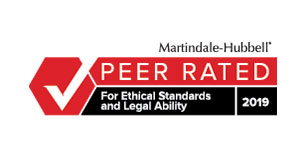In West Virginia, the insurance company of the party at fault for an accident, injury or medical malpractice case is responsible for paying the victim’s medical bills. The insurance company is the primary payer, meaning that it has a duty to cover costs up to the policy coverage limit. If and when that coverage limit is reached, a secondary payer may cover the remaining costs.
If a victim is eligible for Medicare, the government healthcare program for those 65 and above, Medicare becomes the secondary payer. In certain circumstances, Medicare can temporarily take over the role of primary payer, offering conditional payments to cover a victim’s bills until the primary payer fulfills its duties. This payment is basically a loan. Medicare will expect to be reimbursed for these conditional payments.
A conditional payment may become necessary if the insurance company of the person who caused the accident denies that its policyholder was at fault. The insurance company and the victim’s lawyer may review evidence and argue about its meaning in order to come up with a fair fault calculation, or a victim may need to file a personal injury lawsuit to seek desired compensation. While a dispute is ongoing, however, medical bills often continue to add up. This is where Medicare steps in, paying out claims as they are submitted so that the accident victim is not personally required to pay for expenses caused by someone else. When Medicare offers a conditional payment, the victim is responsible for ensuring the agency is paid back for the full amount once a settlement, verdict or other payment is granted by the primary insurer.
Because obtaining fair compensation from an insurer is often an uphill battle, it can be helpful to enlist an attorney who is familiar with West Virginia’s insurance laws and the federal Medicare Secondary Payment Act. When an attorney is involved, he or she will report the conditional payment case to the Benefits Coordination & Recovery Center (BCRC). The BCRC can provide a Conditional Payment Letter that details payments Medicare has made to healthcare providers. The lawyer can then use the Conditional Payment Letter to demonstrate the amount owed by the primary insurer.
At Prim Law Firm, PLLC, we have more than 30 years of experience handling complicated personal injury cases, including those that require coordination of benefits between Medicare and an at-fault party’s insurance company. Our office in Hurricane, West Virginia offers each new client a free initial consultation. Call us at 304-201-2425 or contact us online to set up a meeting with one of our knowledgeable attorneys.



